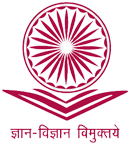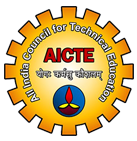About Distance M. Tech in Computer Science
Distance M. Tech in Computer Science is a two year post graduate program that offers students a chance to solidify their computer science foundations and gain a variety of exposure to cutting-edge technological know-how. This curriculum aims to provide students with advanced conceptual knowledge, technical abilities, and the capacity to engage in computer science and engineering-related research. Distance M.Tech. in Computer Science Engineering is a distinctive combination of web, software, and programmer design.
The Master's program is concentrated on providing students with in-depth understanding of many aspects of computer science and information technology because digital technologies today play a major role in every sector. With smartphones and other digital devices taking up the majority of our lives, an M.Tech in Computer Science and Engineering is quickly becoming the career of choice. The course offers opportunities for project-based learning and interaction with academic and industrial specialists, which aids in teaching students about developing technologies and their real-world uses in problem-solving.
Who Should Pursue Distance M.Tech in Computer Science
A distance M.Tech in Computer Science degree might be an excellent option for those who meet specific criteria and have specific goals. The following are some potential candidates who might consider applying to this program:
Professionals in the workforce
Distance M.Tech programs are frequently made to accommodate students who are employed in the field of computer science. A distance M.Tech can be a practical choice if you are a working professional in the technology sector and want to improve your skills and knowledge without taking a career hiatus.
Career advancement
A distant M.Tech in Computer Science could be helpful if you are an engineer or computer science graduate wishing to develop your career and move into more specialized or higher-level employment. This advanced degree may provide access to more lucrative employment options.
Flexibility
For people whose personal or professional commitments make it difficult for them to attend a typical on-campus program, distance M.Tech programs are excellent. A distance M.Tech program may be a good choice if you need the freedom to study anywhere you choose and at your own speed.
Specialization
Within the discipline of computer science, distance M.Tech programs frequently offer a variety of specialties. A focused distance M.Tech can help you become knowledgeable in a particular field of interest, such as artificial intelligence, cybersecurity, data science, software engineering, etc.
Aspiring researchers
Pursuing a distant M.Tech might be a stepping stone to more research possibilities, such Ph.D. programs, if you have a passion for research and want to go deeper into particular areas of computer science.
Geographical Restrictions
People who live in regions with restricted access to prestigious academic institutions offering regular on-campus M.Tech programs in computer science may benefit most from distance M.Tech programs
Self-discipline and Motivation
In order to successfully complete a distance M.Tech program, you must possess strong self-control, drive, and time management abilities. A distant M.Tech may be the best option for you if you feel you have these abilities and can maintain your concentration while studying without regular in-person supervision.
Is M.Tech through distance education valid?
Regarding the legitimacy of MTech distance learning, there are certain concerns. There are a substantial number of universities conducting and offering admission to MTech degree programs in the distant mode, but not all of them have gone through the UGC and DEB approval procedures. Candidates who wish to enroll in the Master of Technology (MTech) program must confirm that the universities they have chosen have been approved by the appropriate educational authorities.
University approvals to check before pursuing M. Tech distance education
Anytime, Anywhere



Are You Eligible ?
Education
Students with a B. Tech degree are eligible to apply for admission to the appropriate M. Tech program. Students who have earned an M. Sc. in science, mathematics, computer science, electrical engineering, or a related discipline are eligible to apply for admission to the appropriate M. Tech. program. MCA graduates may also apply for admission to M. Tech. computer engineering branches that are pertinent to them.
Fees for B. Tech Distance Education
50K – 80K Per Year (As fees varies according to universities)

Assessment & Examination
The following steps are commonly included in the exam and evaluation process for M.Tech Engineering students using distant learning:
Internal assessment (IA) : is a part of the evaluation that is based on work done on assignments, tests, and other coursework throughout the semester. IA is normally worth roughly 25% of the course's overall grades, though this varies from institute to institute.
The term-end examination (TEE): is a thorough test that is given at the conclusion of the semester. Normally, the TEE accounts for 75% of the course's overall grades.
Project: In certain institutes, the evaluation procedure includes a project. A research article, a design project, or an internship report are all acceptable project types. Although the weighting of the project varies from institute to institute, it normally accounts for 10% of the course's overall scores.
For each course, the required passing percentage is typically 40%. But certain institutions might have a greater pass rate.
|| SEMESTER | & ||
| S. No. | Subject Code |
| MTCSE 101-1 | Cloud Computing |
| MTCSE 101-2 | Artificial Intelligence |
| MTCSE 102 | Advance Data Structures & algorithm |
| MTCSE 103 | Object oriented technology |
| MTCSE 104 | Advance Computer Architecture |
| MTCSE 105 | Advance Computer Network |
| MTCSE 106 | Lab-I (102,103) |
| MTCSE 107 | Lab-II (104,105) |
| MTCSE 201 | Web Technology |
| MTCSE 202 | Information Theory coding and cryptography |
| MTCSE 203 | Advance DBMS |
| MTCSE 204 | Soft Computing |
| MTCSE 205 -1 | Wireless Networks |
| MTCSE 205 -2 | System Programming |
| MTCSE 206 | Lab-III (201,203) |
| MTCSE 207 | Lab-IV (202,204) |
|| SEMESTER ||| & |V
| S.NO. | Subject Code |
| MTCTA- 301[1] | Data Mining and ware housing |
| MTCTA- 301[2] | Web Engineering |
| MTCTA- 301[3] | Bio Informatics |
| MTCTA- 302[1] | Software testing and quality assurance |
| MTCTA- 302[2] | Ad-hoc Networks |
| MMTCTA- 302[3] | Mobile Computing |
| MTCTA-303 | Seminar |
| MTCTA-304 | Dissertation Part I (Literature Review/Problem Formulation/ Synopsis) |
Job options
Jobs directly related to your degree include:
| Software Developer/Software Engineer | Systems Analyst/ Data Scientist/Analyst/Machine Learning Engineer/Database Administrator (DBA) |
| Network Engineer | Web Developer/Mobile App Developer/Information Security Analyst/UX/UI Designer |
| DevOps Engineer | Artificial Intelligence (AI) Specialist/Cloud Solutions Architect/Game Developer/IT Consultant |
| IT Project Manager | Computational Scientist/ IT Support Specialist/ Computer Vision Engineer/Embedded Systems Engineer |
Jobs where your degree would be useful include:
| Software Developer/Software Engineer | Systems Analyst/ PData Scientist/Analyst/Machine Learning Engineer/Database Administrator (DBA) |
| Network Engineer | Web Developer/Mobile App Developer/CInformation Security Analyst/UX/UI Designer |
| DevOps Engineer | Artificial Intelligence (AI) Specialist/Cloud Solutions Architect/Game Developer/IT Consultant |
| IT Project Manager | Computational Scientist/IT Support Specialist/Computer Vision Engineer/Embedded Systems Engineer |








